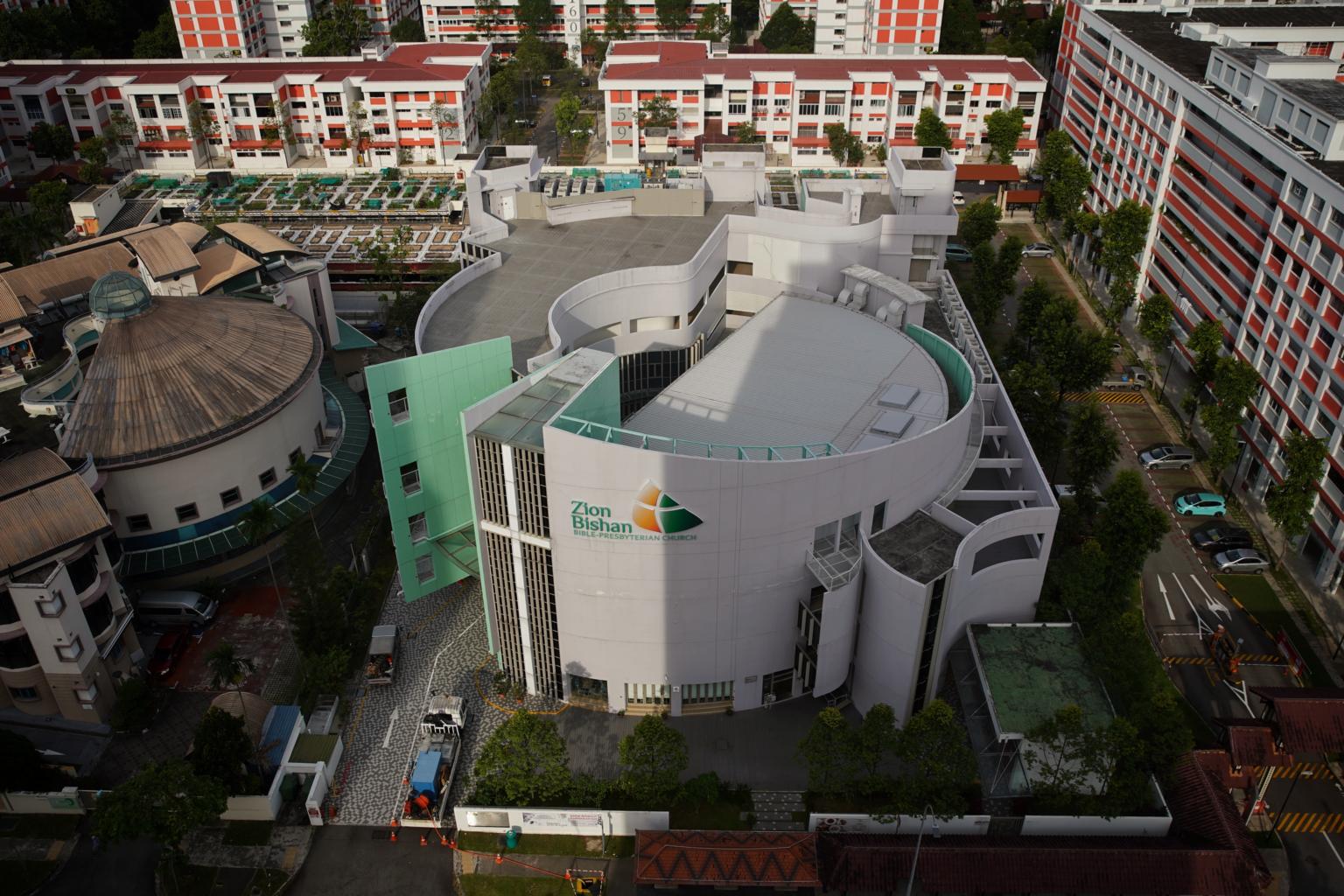Some places of worship opt against 30-year lease renewals, await govt review of religious land policies
Sign up now: Get ST's newsletters delivered to your inbox

Zion Bishan Bible-Presbyterian Church, whose 30-year lease ended on June 30, took up a short-term tenancy of three years.
PHOTO: ST FILE
SINGAPORE - Since 2018, 20 places of worship with expiring leases have taken up short-term tenancies or temporary occupation licences instead of renewing their leases for 30 years, as they await the completion of an ongoing review of land pricing policies for religious organisations.
On Tuesday, Law Minister K. Shanmugam told Parliament that the shorter-term options were offered to the organisations pending the outcome of the review, which covers how the Government allocates land to be used by places of worship and determines how to price the land.
Despite the offer, six places of worship have taken up 30-year lease renewals at current market prices instead, he noted.
Mr Shanmugam said the Government has made significant progress with the review and will announce more details when it is completed soon. Organisations that took the shorter-term options would be able to reap the benefits of the new policies, he said.
First reported by The Straits Times in July, the review seeks to address the rising price of land for places of worship in recent years, which Mr Shanmugam attributed to competitive bidding by religious organisations.
"The Government has been in discussions with various religious organisations, to consider how best to assist them in mitigating the price rises, which come from such bidding," said the minister.
"And at the same time, the Government has been doing a review of our place of worship land allocation and pricing framework, to see how the price rises can be mitigated."
The response from Mr Shanmugam was to a question by Ms Sylvia Lim (Aljunied GRC) on how the price of land for religious organisations is decided for new parcels and lease renewals.
Mr Shanmugam said state land parcels - including those allocated for use by places of worship - have to be sold at fair market value.
With the exception of land for mosques, place of worship land parcels are generally sold through a competitive land tender process, resulting in the highest acceptable bid becoming the land price for the specific site.
Mosque land is transferred directly to the Islamic Religious Council of Singapore at a market price determined by the chief valuer.
As proceeds from land sales go into the nation's reserves, Mr Shanmugam said the Government cannot "unilaterally adjust the price of land that is sold for place of worship use", as the Reserves Protection Framework requires land to be disposed of at fair market value.
"Any change will require a change to the Reserves Protection Framework and also the approval of the President," he added.
The minister said the premiums for place of worship lease renewals are pegged "at current market price as determined by the chief valuer generally".
The chief valuer considers relevant transactions of place of worship land as well as the site's location and size, he added.


